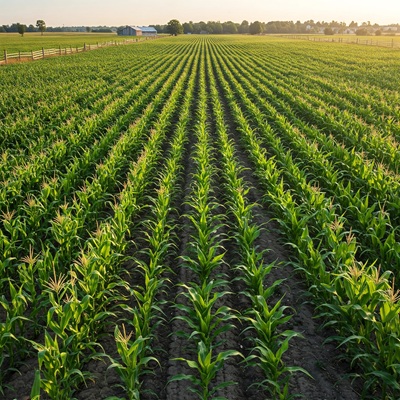Agriculture is a vital sector that has met basic needs throughout human history and played an important role in the development of civilizations. Today, factors such as an increasing population and changing climate conditions are heightening the need to make the agricultural sector more productive and sustainable. At this point, innovative materials like resins offer significant advantages in agricultural applications, contributing to the sector's development.
Applications of Resins in Agriculture
Resins are organic compounds, generally with adhesive and protective properties, obtained from natural or synthetic sources. Various types of resins are used for different purposes in the agricultural sector. Here are some important application areas:
- Soil Improvement: Resins can improve soil structure, increase water retention capacity, prevent erosion, and enable better absorption of plant nutrients. Resins used especially in arid and sandy soils support plant growth, thereby increasing productivity.
- Plant Protection: Resins can be used to protect plants from harmful insects, fungi, and other diseases. Resin-based coatings protect the surface of plants, making pathogen penetration more difficult and increasing plant resistance.
- Fertilization: Resins can be used to control the release of fertilizers. Controlled-release fertilizers provide plants with the nutrients they need in a timely and appropriate amount, optimizing fertilizer use and reducing environmental pollution.
- Seed Coating: Resins can be used to increase the germination rate of seeds and protect them from external factors. Resin-based seed coatings enable seeds to grow faster and healthier, thereby increasing crop yield.
- Greenhouse Cultivation: Resins can be used in the construction and insulation of greenhouses. Resin-based materials make greenhouses more durable and energy-efficient, reducing production costs.
Advantages of Resins
- Environmentally Friendly: Resins obtained from natural sources can improve soil and plant health without harming the environment.
- Economical: Resin-based solutions can provide long-term cost savings. Resins used in areas like soil improvement, plant protection, and fertilization increase productivity, reducing crop loss.
- Versatile: Resins can be used in different agricultural applications and can offer solutions for various needs.
- Sustainable: Resins can help make agricultural practices more sustainable. By enabling more efficient use of water and nutrients, they contribute to the conservation of natural resources.
Resins are important materials used to increase productivity and sustainability in the agricultural sector. Used in many areas such as soil improvement, plant protection, fertilization, seed coating, and greenhouse cultivation, resins offer significant advantages to farmers. In the future, with further development of resin technologies, more innovative and effective solutions are expected to emerge in the agricultural sector.

